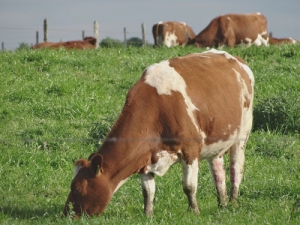Battle for milk
OPINION: Fonterra may be on the verge of selling its consumer business in New Zealand, but the co-operative is not keen on giving any ground to its competitors in the country.
 Analysts are now picking a dairy price recovery by the end of the year. Haven't they said that for the last three years?
Analysts are now picking a dairy price recovery by the end of the year. Haven't they said that for the last three years?
Analysts are now picking a dairy price recovery by the end of the year. Haven't they said that for the last three years?
Even their usual cautious optimism is being tempered by words like "fragile" international dairy markets, worries over how bad the situation is in China and the outlook for the global economy. Even the most optimistic forecasters have a payout with a '4' in front of it for this season in review and are anxiously watching for the next season.
The year will be a tough one and there are no quick-fix solutions.
The usual messages – tough it out, watch costs, make sensible decisions and talk to you banks – still can't be ignored. But even those only go so far. There's a point at which you have to ask, is this working and if not where to now?
Individuals will be asking themselves those questions right now. Some will be making tough decisions this year, particularly those who are highly leveraged. Dairy farms are starting to hit the market in some vulnerable areas; lots of farmers and other New Zealanders will be hoping to see those stay in onshore ownership.
The long-term outlook for dairy still remains optimistic but how long the recovery will take is becoming anybody's guess. And just who will be the winners in that recovery?
Is the dairy sector in New Zealand actually facing a new era? Will it have to reinvent itself as many industries have had to do over years in the face of increasing globalisation, new products and new technologies?
The US car industry was on its knees and almost facing obliteration after the Global Financial Crisis; last year a resurgent US auto industry was leading that country's economic recovery.
What are the answers for the New Zealand dairy industry? Hold tight, hold your nerve, wait for recovery? Or is there more to it than that? New systems, new technology, new business models, new strategies, new products?
Has Fonterra taken the right course in its global expansion and promotion of milk pools overseas, or contributed to the current pain of its own shareholders, the New Zealand farmer. Or are these wily strategic moves in this new global game, which we must play or slip into economic oblivion?
Fonterra has kicked off the debate with its "Let's have the Conversation" on governance and representation. But that conversation needs to go wider, broader and braver.
Do we dare to have it?
Keratin biomaterials company Keraplast and Wools of New Zealand have signed a new superpremium wool contract which is said to deliver a boost to wool growers.
While things are looking positive for the red meat sector in 2026, volatility in global trade remains a concern, says the Meat Industry Association (MIA).
The quest to find innovative practical, scientific solutions to deal with water-related issues at a catchment level has been the theme of an important conference at Massey University last week.
One of the country's top Māori farms faces a long and costly rebuild to get the property back to where it was before recent storms ripped through it.
The latest Global Dairy Trade auction results have delivered a boost to dairy farmers.
New Zealand potato growers are prioritising value creation from high yields to meet a complex mix of challenges and opportunities, says Potatoes NZ chief executive Kate Trufitt.
OPINION: Fonterra may be on the verge of selling its consumer business in New Zealand, but the co-operative is not…
OPINION: What does the birth rate in China have to do with stock trading? Just ask a2 Milk Company.